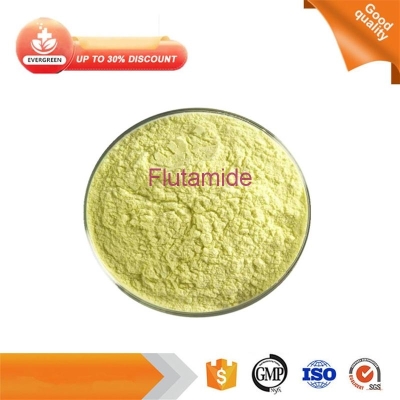-
Categories
-
Pharmaceutical Intermediates
-
Active Pharmaceutical Ingredients
-
Food Additives
- Industrial Coatings
- Agrochemicals
- Dyes and Pigments
- Surfactant
- Flavors and Fragrances
- Chemical Reagents
- Catalyst and Auxiliary
- Natural Products
- Inorganic Chemistry
-
Organic Chemistry
-
Biochemical Engineering
- Analytical Chemistry
- Cosmetic Ingredient
-
Pharmaceutical Intermediates
Promotion
ECHEMI Mall
Wholesale
Weekly Price
Exhibition
News
-
Trade Service
The chromosomal weight row involving the interdessional lymphoma kinase (ALK) gene defines non-small cell lung cancer (NSCLC) that is highly sensitive to the small molecule ALK tyrosine kinase inhibitor.
past trials have shown that the first generation of ALK inhibitor kerazine is superior to platinum-pesotrocycline chemotherapy, and it is this discovery that establishes clotinyl as the standard first-line treatment for late-stage ALK-positive NSCLC.
, a number of random Phase 3 studies showed that second-generation ALK inhibitors, including alethinib, briatinib, and nsateni, were more effective than kerazine.
these findings have led to the replacement of clopithylin as a new standard first-line treatment by second-generation inhibitors.
, however, the side effects of disease and death caused by drug resistance and relapsed diseases, including central nervous system diseases, have not been alleviated, although the efficacy of second-generation inhibitors has improved.
Lorrathini is a new third-generation APK inhibitor that has been shown to be more effective than second-generation inhibitors in bio-chemical and cellular analysis, while covering the largest range of ALK-resistant mutations.
is designed to cross the blood-brain barrier in order to achieve high levels of exposure in CNS.
phases 1 and 2 of the study, Lyathini still had effective anti-tumor activity after the failure of previous APK inhibitors (first, second, or both).
had significant intracranial activity in patients previously treated for baseline central nervous system diseases, including soft meninges.
consideration of its efficacy and safety, La Rantini is a standard treatment option for APK-positive patients with one or more APK inhibitors that are ineffective.
CROWN trial is a global randomized Phase 3 trial that compares the conditions of Lara tinib and closinib (both treated with standard first-line treatment at the beginning of the trial) in patients with advanced ALK-positive NSCLC who had not previously been treated.
researchers conducted a global randomized Phase 3 trial that compared the efficacy of loratinib with cytosine in 296 patients with advanced ALK-positive NSCLC who had not been treated for systemic metastasis.
main endpoint of the project is progress-free survival, which is assessed through an independent central evaluation of blind law.
secondary endpoints include objective responses to independent assessments and intracranial reactions.
planned to conduct a mid-term efficacy analysis after 133 (75%) of the 177 expected events of disease progression or death.
The percentage of patients who survived without disease progression at 12 months was 78% (95% confidence interval (CI) was 70 to 84), and 39% (95% CI was 30 to 48) (risk ratio of disease progression or death was 0.28; 95% CI was 0.19 to 0.41; P .lt;0.001).
objective response occurred in 76% (95% CI, 68-83) of patients in the Lara tynie group and 58% (95% CI, 49-66) in the keratinist group.
In patients with measurable brain metastasis, 82% (95% CI, 57-96) and 23% (95% CI, 5-54) had intracranial reactions, respectively, and 71% of patients receiving Lyutinie had intracranial reactions.
most common adverse events in Lauratini are hyperlipidemia, edema, weight gain, peripheral neuropathy and cognitive effects.
was associated with a higher correlation between level 3 or level 4 adverse events (mainly changes in blood lipid levels) than cloptosini (72% and 56%, respectively).
7% and 9%, respectively, were interrupted by adverse events.
in an interim analysis of the results of previously untreated patients with advanced ALK-positive NSCLC, patients treated with clopidinib had longer non-progressive lifetimes and higher intracranial response frequency than those treated with clopidinib.
, due to changes in blood lipid levels, the risk of adverse events in level 3 or 4 was higher than in clotinib.
, the safety of laratinib is similar to previous studies, and laratinib has significant side effects compared to other APK inhibitors.
patients who received Lya tini, cognitive responses were reported at 21 percent and emotional side effects were reported at 16 percent, mostly in low levels.
cognitive and emotional changes usually occur within the first two months of laratinie dosing and can be controlled by dose interruption and reduction.
weight gain is due to increased appetite, which is widely reported in patients treated with laratini.
cognitive and emotional changes may be due to off-target inhibition of the primary myoglobulin-like geneast kinase B in the central nervous system.
3 or 4 levels of adverse events (72% and 56%, respectively) were more frequent than those of cloptonini.
, however, more than half of the adverse events in the 3rd or 4th grade were elevated cholesterol, triglycerides, or both.
hypercholesterolemia and hyperglycerideemia are the most common adverse reactions reported by Lalatini.
Similarly, the rate of adverse events in Level 3 or higher was higher than that of cytocininib (73 percent to 61 percent), while the rate of adverse events at level 3 or higher was slightly lower than that of cytocininib (45 percent to 51 percent).
Although the risk of adverse events in level 3 or 4 was higher, the termination of treatment due to adverse events was similar in both groups (7 per cent of patients who received loratinini and 9 per cent of patients who received cloptonyl).
on outcomes also supported a safer and higher quality of life than closinist.







